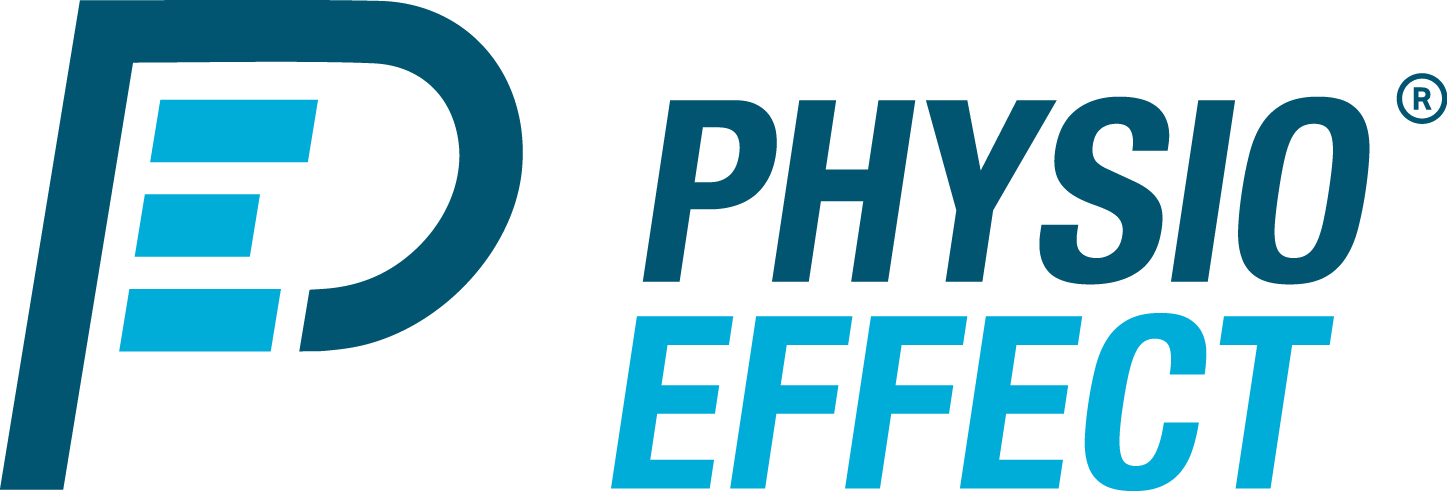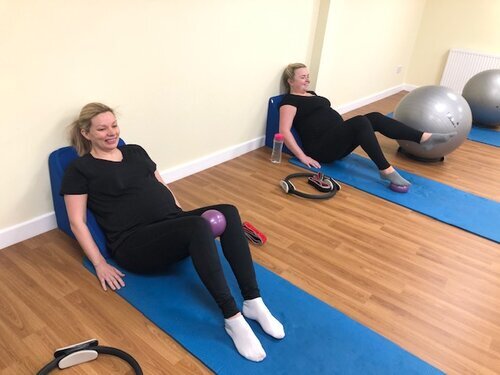Antenatal Pilates Classes at Physio Effect
Some exciting news! We have a NEW Antenatal Pilates class running in our studio within our Northside clinic at Borron Street. This physio-led Clinical Pilates class aims to prevent pregnancy related issues such as pelvic girdle pain (PGP), symphysis pubis dysfunction (SPD), posture related pain as well as a full body programme to prepare you for the birth of your child. During the class, you will be guided through an individualised programme relevant to your stage of pregnancy and any other issues discussed during your initial physiotherapy appointment.
WHEN: Wednesday evenings at 7PM from 21st October
**CLASS NOW FULLY BOOKED**
Please contact us below if you would like to be placed on our waiting list or if you wish to attend any of our other Clinical Pilates classes which will be a mixed group, but you will still be able to do an antenatal programme due to the bespoke nature of the class.
WHEN CAN I START?
As long as you have an uncomplicated pregnancy and your midwife/ doctor approves, you can begin from any time in your second trimester if you have no Pilates experience. If you have previous Pilates experience, you may begin earlier.
HOW DO I GET STARTED?
You will be required to have a 1:1 session with one of our physiotherapists before joining a class for the first time. During this appointment, your physiotherapist will be able to plan a bespoke Pilates programme for you based on your goals, requirements and stage of pregnancy. You will be introduced to the various Pilates props and equipment used during a class including the Pilates Reformer machine.
HOW MUCH DOES IT COST?
Antenatal Physiotherapy Appointment: £49
Single class rate: £25
6 classes: £120 (£20 per class)
12 classes: £220 (£18.3 per class)
You have flexibility to use the class blocks within the following time period:
● 10 weeks on a 6-class block
● 4 months on an 12-class block
WHAT HAPPENS IF I HAVE MY BABY BEFORE I USE UP ALL MY CLASSES?
You may use any remaining class credit towards our Crybaby Pilates Classes. This is our specialist Postnatal Pilates class which you may begin once you are at least 6 weeks postpartum after a non-complicated vaginal delivery or 8 weeks if you have had a C-section/assisted delivery with any complications.
CryBaby (Postnatal) Pilates Class
Antenatal Exercise; What the Guidelines & Evidence Say by Raz Leonard
For over a year I’ve been enjoying teaching two Antenatal Pilates classes at Physio Effect and, from the start, the classes have been fully subscribed. Many of the women tend to come from Health Care professions themselves and know the benefits of exercising during pregnancy. I am always surprised at how many old wives’ tales are out there and how many women remain inactive or stop physical activity during this crucial time. I plan to summarise some recent evidence-based reviews on the topic so that the facts can be divided from fiction.
For over a year I’ve been enjoying teaching two Antenatal Pilates classes at Physio Effect and, from the start, the classes have been fully subscribed. Many of the women tend to come from Health Care professions themselves and know the benefits of exercising during pregnancy. I am always surprised at how many old wives’ tales are out there and how many women remain inactive or stop physical activity during this crucial time. I plan to summarise some recent evidence-based reviews on the topic so that the facts can be divided from fiction.
The evidence shows that exercising during pregnancy is completely safe and in fact improves the chance of a healthy baby and mum. There are some exceptions to each rule which is why it is important to check with your midwife/ health care practitioner first and exercise with someone trained to adapt a programme to you. More detail of this evidence is presented below.
The first publication I wanted to share is by the UK Chief Medical Officers (2019) and based on best available evidence. The infographic summarises the key points however you can access the full report via this link.
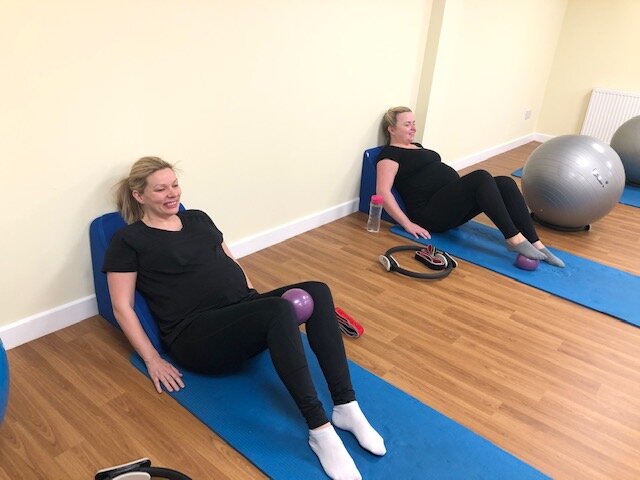
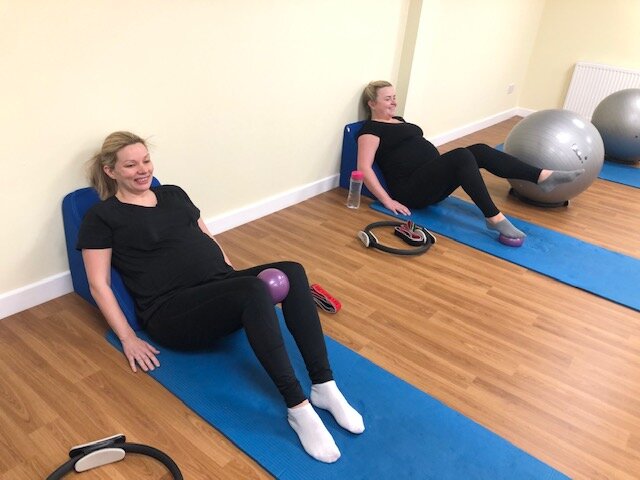
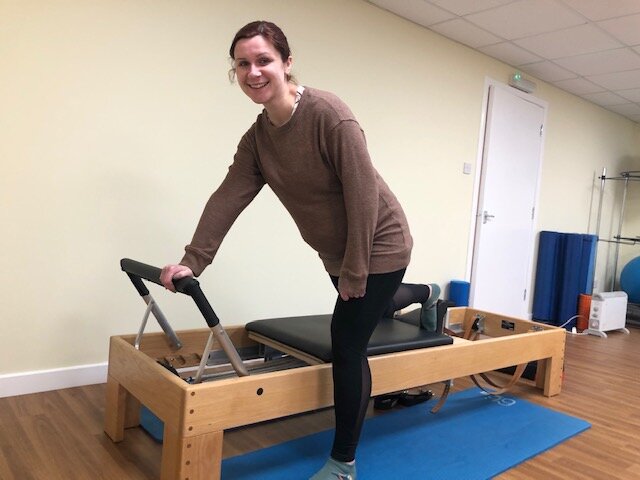
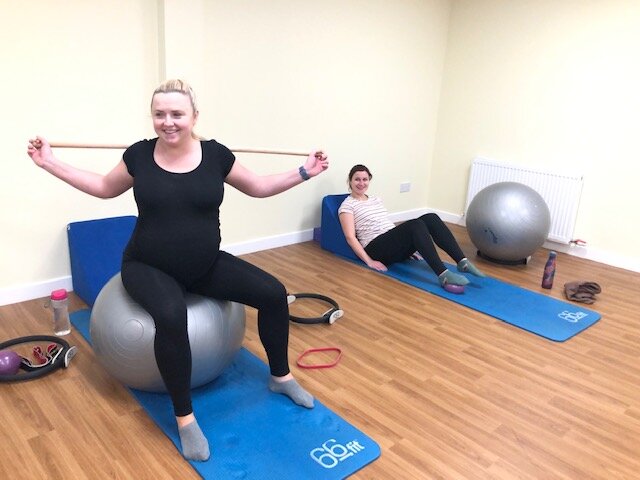
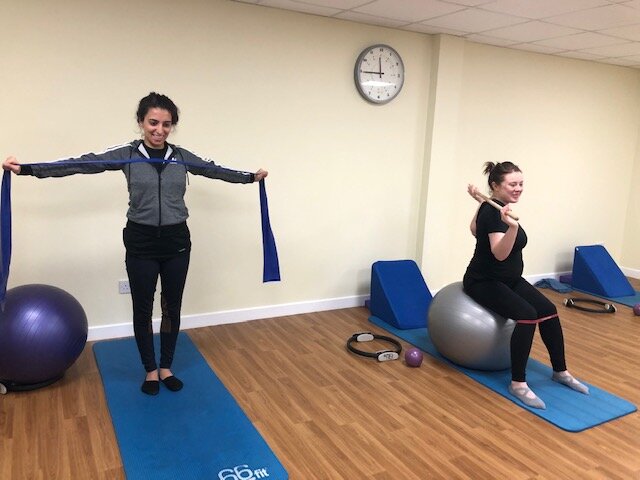
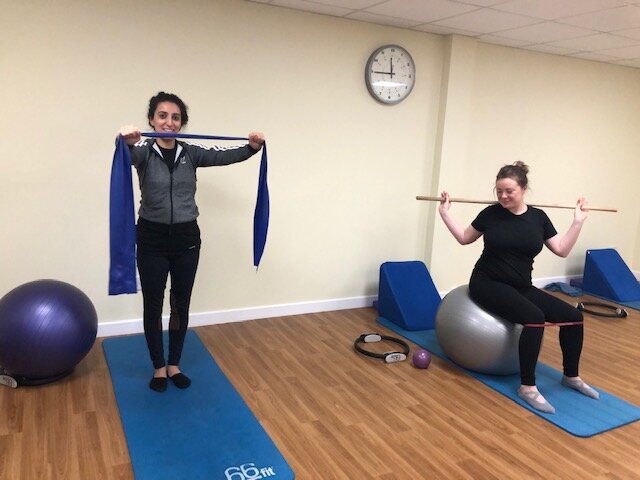
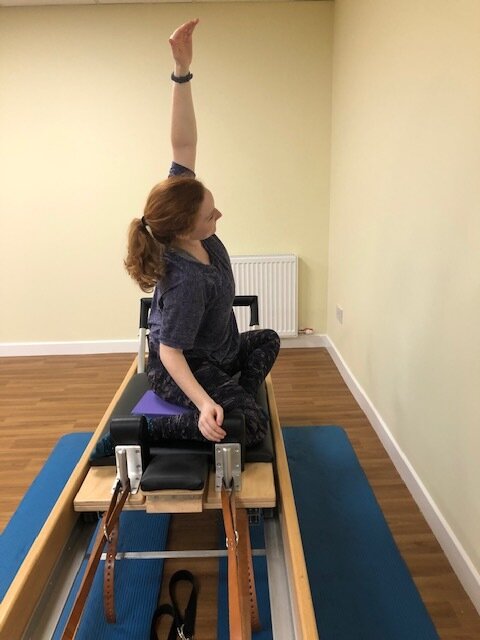
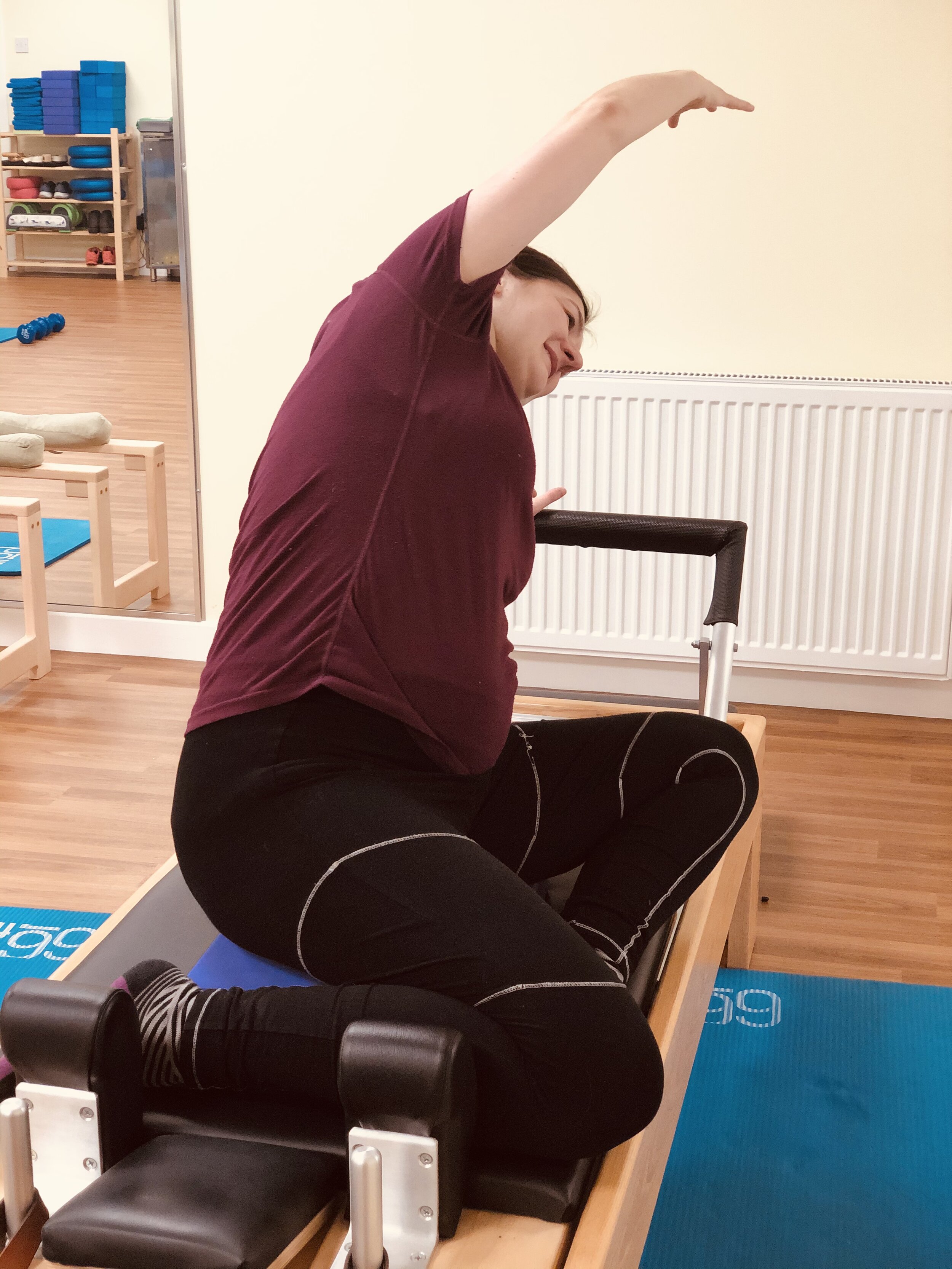
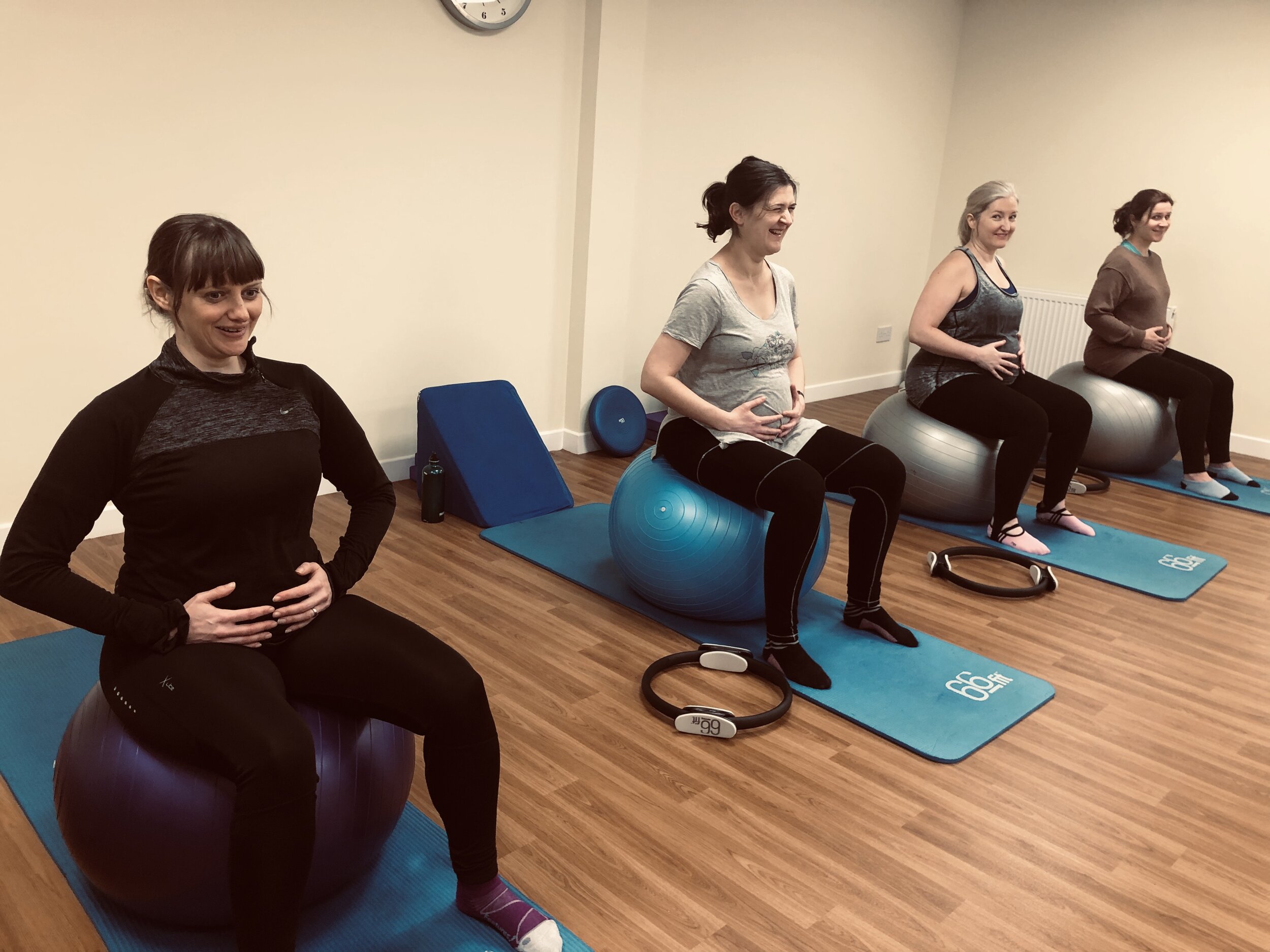
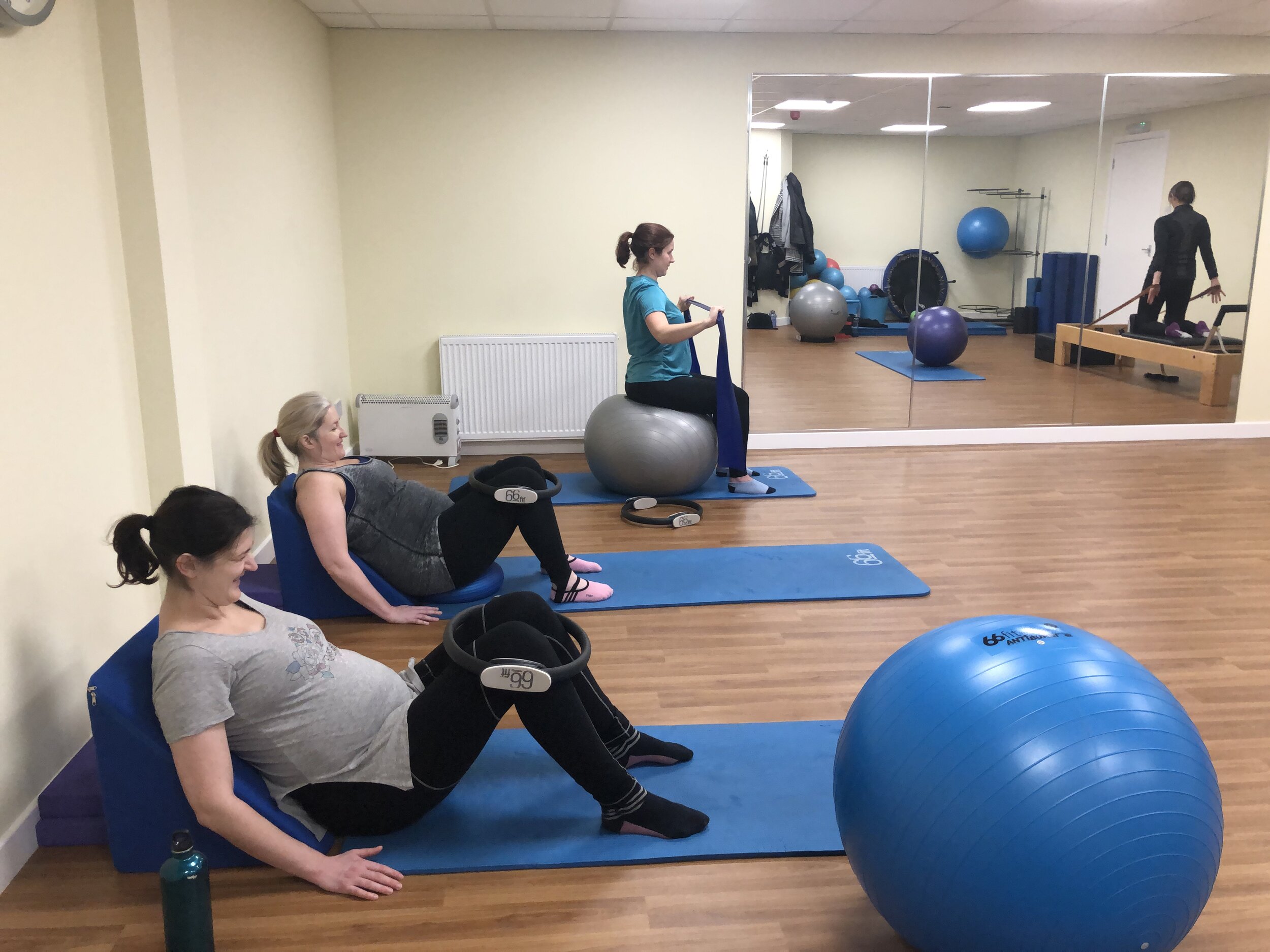
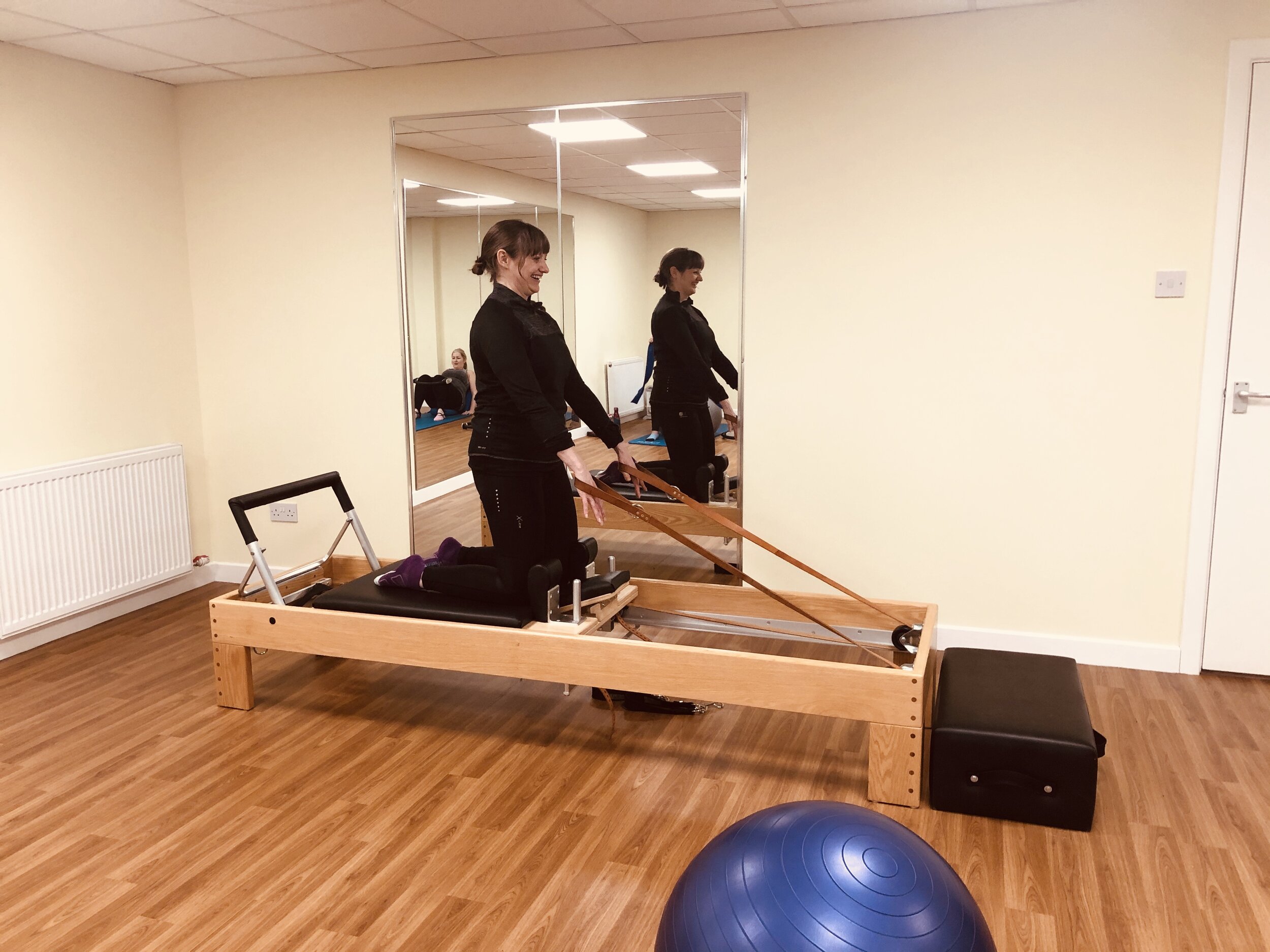
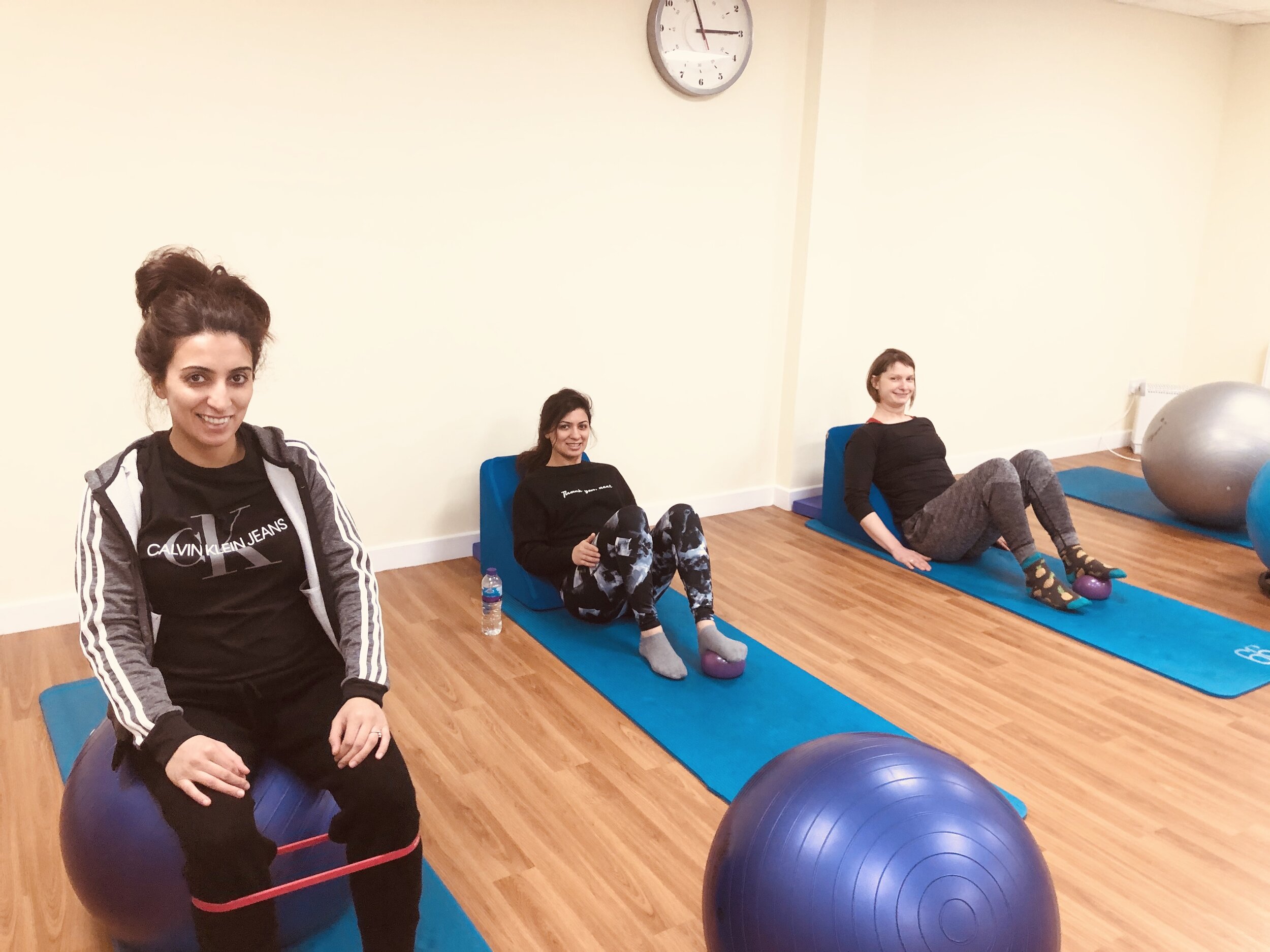
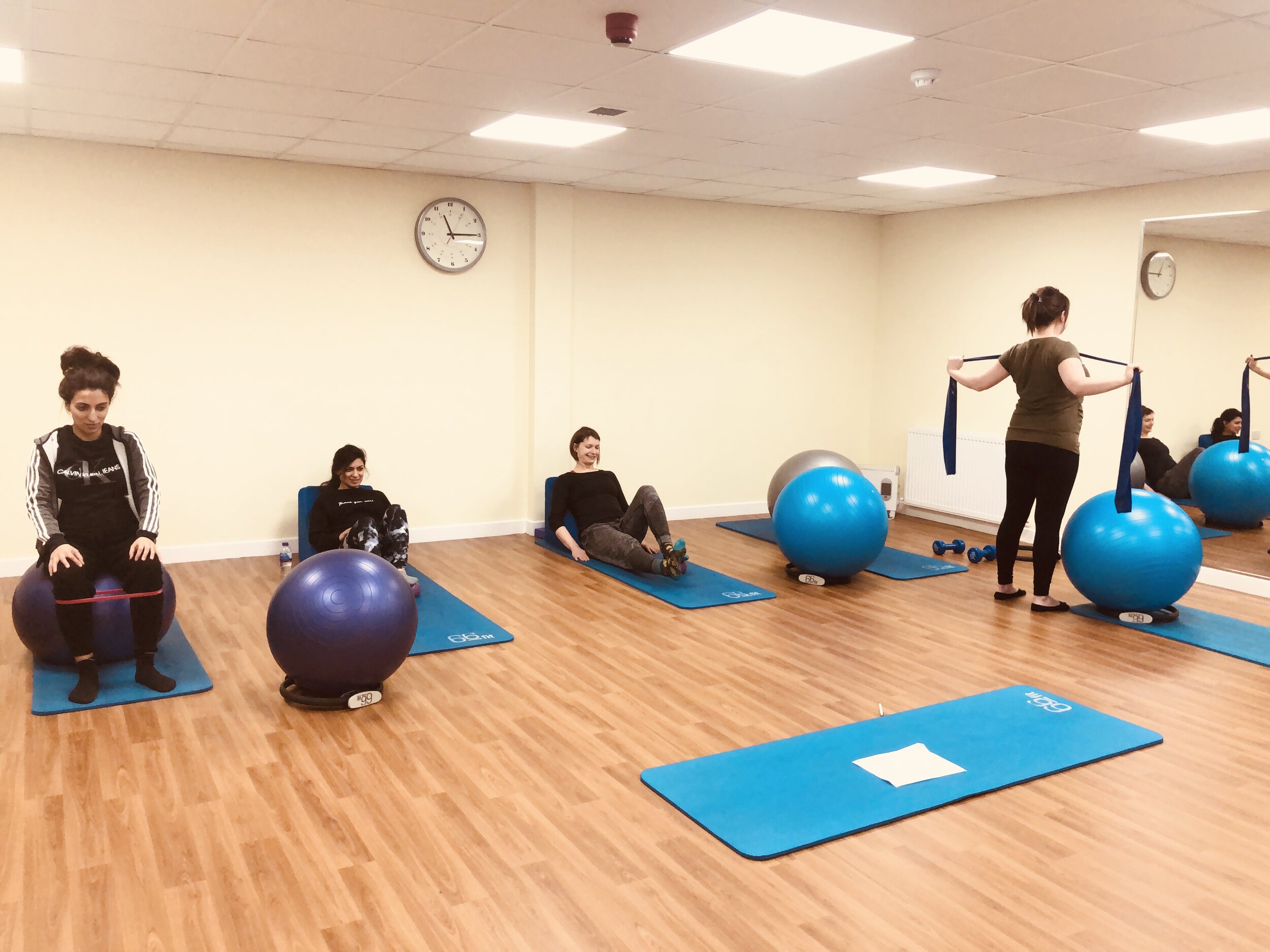
References;
Mottola MF, Davenport MH, Ruchat S, et al
2019 Canadian guideline for physical activity throughout pregnancy
British Journal of Sports Medicine 2018;52:1339-1346
Smith R, Reid H, Matthews A CMO Physical Activity Expert Committee for Physical Activity and Pregnancy, et al
Infographic: physical activity for pregnant women
British Journal of Sports Medicine 2018;52:532-533.
The report states that exercise during pregnancy has been shown to reduce high blood pressure and improve cardiovascular fitness. In addition, it can lower the risk of pregnancy related diabetes and gestational weight gain.
My favourite most recent ante natal exercise paper is “2019 Canadian guideline for physical activity throughout pregnancy”. A group of experts in the field have summarised their recommendations and highlighted the evidence they have to back these up as well as writing a detailed list of who should seek further advice before beginning an exercise program. See this link to read the paper in full.
Below is a summary of their main findings.
‘Strong recommendation’ and have ‘moderate’ quality evidence to support this. (The reason they have said the evidence is ‘moderate’ is because it can be challenging to get enough high quality studies that have enough people in them and are designed robustly to back up their statements.)
All women with normal pregnancies should be active throughout.
At least 150 minutes of moderate level physical activity should be accumulated to achieve these health benefits and reduce pregnancy complications
Accumulating this activity over a minimum of 3 days a week is recommended, however daily activity is encouraged.
Higher evidence and so can be seen as an agreed fact (This is a ‘strong recommendation’ with ‘high’ quality evidence, which is great news for exercising mums to be!):
The types of exercise recommended includes a variety of aerobic and resistance training. Stretching and yoga can also be beneficial.
Common practice however seen as ‘weak recommendations’ as have ‘low-quality’ evidence to back them up:
Women should be taught the correct technique for pelvic floor muscle exercises and carry these out daily to reduce the chance of continence issues.
Women who experience nausea, light-headedness or feel unwell when exercising flat on their back, should modify their exercises to avoid this position.
Antenatal Classes at Physio Effect
Our antenatal class offered at Physio Effect incorporates the above guidelines by contributing to the recommended exercise volume & frequency. Stretching, resistance and pelvic floor exercises are given under guidance by a trained physiotherapist. In addition, exercise position is modified with use of equipment such as a foam wedge and the Pilates reformer. It’s also a great way to meet other mums to be. Please click here for details on booking the class.
Note that we also offer a post-natal program which you can bring your baby along to. This is designed to help restore your body and gently bring to back to the correct level of exercise. Find out more about our CryBaby Pilates classes here.
Our antenatal Pilates class is a bespoke class, individually designed for each person who attends. Clients will be assessed by a physiotherapist who will design and teach the class. For example, the program can help with any musculoskeletal injuries and pregnancy related issues such as pelvic girdle pain. In addition, stage of pregnancy, pelvic floor exercises and safe positions for exercise will be incorporated into this programme.
Crybaby Classes: Post-Natal Pilates Classes at Physio Effect!
Our Post-Natal Pilates class is designed for new mums from 6 weeks post-partum (8-weeks if by C-section) and onwards. The class is designed to help heal and strengthen muscles affected after pregnancy and labour such as your pelvic floor and abdominals.
Our Post-Natal Pilates class is designed for new mums from 6 weeks post-partum (8-weeks if by C-section) and onwards. The class is designed to help heal and strengthen muscles affected after pregnancy and labour such as your pelvic floor and abdominals. This class can also help manage back pain, pelvic girdle pain, improve continence and treat abdominal separation (diastasis recti). The added bonus is you are welcome to bring your baby along to the class while you exercise.
How do I get started?
For first-timers, you will be required to have a post-natal 1:1 assessment with one of our physiotherapists. This can be booked after you’ve had your 6 week check-up from your physician and given the all-clear to start exercising (usually a little longer if you've had a C-section). During this consultation, you will be able to discuss your pregnancy, labour and set some goals you’d like to achieve after having your baby. The physiotherapist will assess your pelvic floor and abdominal function and go over some basic, fundamental Pilates exercises in preparation to starting the classes. This appointment usually takes 30 minutes and you are welcome to bring your baby along.
When are the classes?
The classes are every Tuesday and Wednesday and run over a 6-week or a 12-week block. Each class lasts an hour. If you would like to start the classes in the middle of a current block, there is an option to pay per class depending on available spaces. The class number is small with a maximum number of 8 mums per class. Please get in touch to find out when the next block is.
How much does it cost?
Physiotherapy post-natal Assessment (if you are attending for the first time): £30
6-week block: £60
12-week block: £110
If you would like to pay per class, for example, if you cannot attend all classes in the block or if you are joining in the middle of an existing block, it would cost £12 per class depending on available spaces (we take a maximum of 8 mums per class).
Up until what age can I bring my baby?
You are welcome to bring your baby up until they are able to crawl/move about (which can be different for every baby, of course!). Otherwise you may find it difficult to do your Pilates exercises.
Are your facilities buggy friendly?
Our Pilates studio is located within the EDA Gym which has ramps for easy buggy access. The studio has ample space for your buggy and there is a lounge area and café where you can buy water/coffee/tea and snacks.
What other Ante- and Post-Natal Services do you provide at Physio Effect?
Here at Physio Effect, we have a number of therapists specially trained to help you through your pregnancy journey and after you've had your baby. Click here for more info on our other services
“Fantastic Pilates class that has helped me regain confidence, strength and my figure after having my son. Mariam is very skilled and knows exactly how to fine tune the exercises to suit individual needs. It is a particular bonus that you can take your baby along and Mariam is on hand to lend a cuddle if one of them is unhappy. There is also a cafe onsite where the group enjoy a coffee and a natter after the class. I would not hesitate to recommend”
